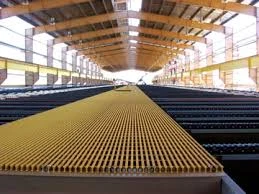
-
 Afrikaans
Afrikaans -
 Albanian
Albanian -
 Amharic
Amharic -
 Arabic
Arabic -
 Armenian
Armenian -
 Azerbaijani
Azerbaijani -
 Basque
Basque -
 Belarusian
Belarusian -
 Bengali
Bengali -
 Bosnian
Bosnian -
 Bulgarian
Bulgarian -
 Catalan
Catalan -
 Cebuano
Cebuano -
 China
China -
 China (Taiwan)
China (Taiwan) -
 Corsican
Corsican -
 Croatian
Croatian -
 Czech
Czech -
 Danish
Danish -
 Dutch
Dutch -
 English
English -
 Esperanto
Esperanto -
 Estonian
Estonian -
 Finnish
Finnish -
 French
French -
 Frisian
Frisian -
 Galician
Galician -
 Georgian
Georgian -
 German
German -
 Greek
Greek -
 Gujarati
Gujarati -
 Haitian Creole
Haitian Creole -
 hausa
hausa -
 hawaiian
hawaiian -
 Hebrew
Hebrew -
 Hindi
Hindi -
 Miao
Miao -
 Hungarian
Hungarian -
 Icelandic
Icelandic -
 igbo
igbo -
 Indonesian
Indonesian -
 irish
irish -
 Italian
Italian -
 Japanese
Japanese -
 Javanese
Javanese -
 Kannada
Kannada -
 kazakh
kazakh -
 Khmer
Khmer -
 Rwandese
Rwandese -
 Korean
Korean -
 Kurdish
Kurdish -
 Kyrgyz
Kyrgyz -
 Lao
Lao -
 Latin
Latin -
 Latvian
Latvian -
 Lithuanian
Lithuanian -
 Luxembourgish
Luxembourgish -
 Macedonian
Macedonian -
 Malgashi
Malgashi -
 Malay
Malay -
 Malayalam
Malayalam -
 Maltese
Maltese -
 Maori
Maori -
 Marathi
Marathi -
 Mongolian
Mongolian -
 Myanmar
Myanmar -
 Nepali
Nepali -
 Norwegian
Norwegian -
 Norwegian
Norwegian -
 Occitan
Occitan -
 Pashto
Pashto -
 Persian
Persian -
 Polish
Polish -
 Portuguese
Portuguese -
 Punjabi
Punjabi -
 Romanian
Romanian -
 Russian
Russian -
 Samoan
Samoan -
 Scottish Gaelic
Scottish Gaelic -
 Serbian
Serbian -
 Sesotho
Sesotho -
 Shona
Shona -
 Sindhi
Sindhi -
 Sinhala
Sinhala -
 Slovak
Slovak -
 Slovenian
Slovenian -
 Somali
Somali -
 Spanish
Spanish -
 Sundanese
Sundanese -
 Swahili
Swahili -
 Swedish
Swedish -
 Tagalog
Tagalog -
 Tajik
Tajik -
 Tamil
Tamil -
 Tatar
Tatar -
 Telugu
Telugu -
 Thai
Thai -
 Turkish
Turkish -
 Turkmen
Turkmen -
 Ukrainian
Ukrainian -
 Urdu
Urdu -
 Uighur
Uighur -
 Uzbek
Uzbek -
 Vietnamese
Vietnamese -
 Welsh
Welsh -
 Bantu
Bantu -
 Yiddish
Yiddish -
 Yoruba
Yoruba -
 Zulu
Zulu
fiberglass products for thermal and nuclear power
Fiberglass Products for Thermal and Nuclear Power A Comprehensive Overview
Fiberglass, a composite material made from fine glass fibers and resin, has gained significant traction in various industries due to its unique properties, including lightweight, high strength, corrosion resistance, and thermal insulation capabilities. In the context of thermal and nuclear power, fiberglass products have emerged as essential components that enhance efficiency, safety, and performance.
Thermal Properties
Thermal power plants, which generate electricity by converting heat energy into electrical energy, typically operate at high temperatures. Fiberglass materials can withstand extreme temperatures without compromising their structural integrity. This is particularly important in environments where thermal insulation is needed to maintain operational efficiency and minimize heat loss.
Fiberglass insulation is used in various applications within thermal power plants, including boilers, pipes, and turbines. It helps maintain optimal temperatures, reducing energy consumption and improving overall efficiency. By insulating critical components, fiberglass products can prevent heat loss, which directly translates to increased energy production and lower operational costs.
Application in Nuclear Power
The nuclear power industry also benefits greatly from the use of fiberglass products. Given the stringent safety standards required in nuclear facilities, fiberglass materials are used in a variety of applications to enhance safety and efficiency. One of the primary uses for fiberglass in nuclear power is in containment structures. These structures are designed to withstand extreme conditions and contain any potential release of radioactive materials.
Furthermore, fiberglass-plated cores are often utilized in nuclear reactors. These cores provide the necessary structural support while allowing for the safe handling and storage of nuclear fuel. The non-corrosive nature of fiberglass makes it an ideal choice for these environments, as it ensures long-lasting durability in the face of harsh conditions.
Benefits of Fiberglass in Power Generation
fiberglass products for thermal and nuclear power

The adoption of fiberglass products in thermal and nuclear power brings numerous benefits, including
1. Durability Fiberglass is resistant to corrosion, chemicals, and extreme weather conditions, ensuring longevity in demanding environments. This reduces maintenance costs and downtime, leading to more reliable power generation.
2. Lightweight The lightweight nature of fiberglass makes it easier to handle and install, saving time and labor costs during construction and maintenance.
3. Thermal Insulation Its excellent insulation properties help to keep the heat where it is needed, optimizing energy efficiency and reducing waste.
4. Safety In nuclear applications, the safety of containment structures is paramount. Fiberglass's resilient characteristics ensure that it can withstand high radiation levels and extreme pressures, contributing to the overall safety of nuclear facilities.
The Future of Fiberglass Products in Energy Sector
As the world shifts toward more sustainable energy solutions, the demand for efficient and reliable power generation will continue to grow. Fiberglass products, with their unique properties and multifunctional capabilities, are poised to play a significant role in the future of both thermal and nuclear power industries.
Innovations in fiberglass technology are leading to the development of even more advanced materials that can withstand higher temperatures and provide better insulation. Research into improving the environmental impact of fiberglass production also plays a crucial role in its acceptance in the renewable energy sector. As industries strive for greener solutions, the use of eco-friendly fiberglass composites can pave the way for more sustainable energy practices.
In conclusion, fiberglass products are indispensable in the realm of thermal and nuclear power generation. Their unique properties not only enhance the efficiency, safety, and performance of power plants but also contribute to a more sustainable approach to energy production. As we look toward an energy-efficient future, the continued development and application of fiberglass technology will undoubtedly play a crucial role in shaping the landscape of power generation.









